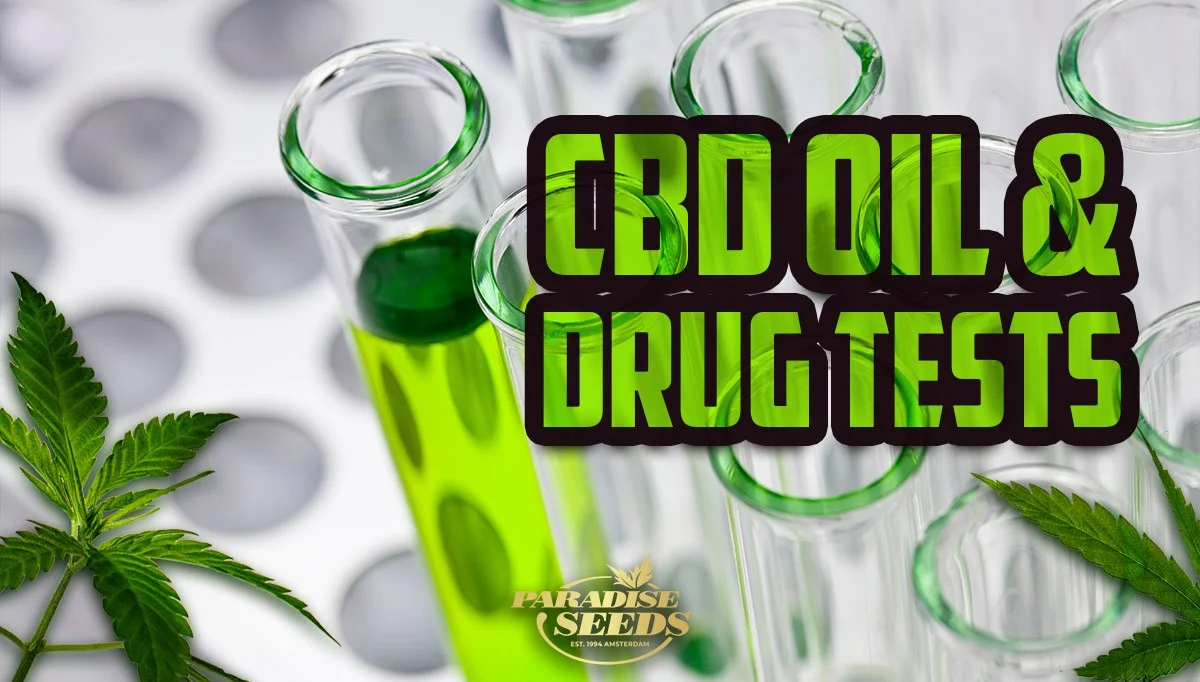CBD users are attracted to the non-psychoactive properties of this popular cannabinoid, which has been marketed extensively as a ‘legal’ cannabis product. However research has been shining a light onto a gray area and asking the question, can CBD oil produce a positive drugs test?
For many CBD users a big part of the attraction is the perceived wellness effects which come with taking CBD cannabis extract – most popularly in CBD oil form – without the risk of falling the wrong side of the law. In order to be a legally compliant CBD product, most countries set a maximum level for the amount of THC present in a CBD oil. In the USA it is 0.3% and 0.2% in the UK and most of the EU, however some countries have set their own limits – for example in France it is 0% (Paradise Seeds CBD Oil products are 100% THC free to avoid any ambiguity).
However, consumer confidence has been shaken by incidents involving individuals testing positive for THC in workplace and roadside drugs tests. Paradise first became aware of the issue after hearing of an exhibitor who was stopped by police following the Cultiva expo in Vienna a couple of years ago. The roadside test showed up positive for THC which was a surprise to the exhibitor, who had only been using CBD extracts.
Research into Positive Drugs Test Results from CBD
In 2019, the US media highlighted this potential issue with a number of reports citing a study in the Journal of Analytical Toxicology , which detailed how two out of six subjects gave a positive urine test after vaping marijuana containing 0.39% of THC. In a Science Daily article, Dr Ryan Vandrey from the Johns Hopkins University School of Medicine said, “Most (CBD users) are completely unaware of the possibility of THC exposure or a positive drug test as a result of using these newly legalized products.”
A 2020 article from the German Society of Toxicological and Forensic Chemistry (GTFCh) newsletter, Toxichem Krimtech, builds on this theme with the revelation that regular (ie daily) users of CBD products – those containing legal limits of THC – could be building up enough of the cannabinoid in the system to produce a positive result in a drugs test. It concludes that while a CBD dose containing 0.1 mg is unlikely to provide a risk, a daily dose of between 0.1 mg and 1 mg means ‘a positive test can already be expected’.
Strip away the science and the message is clear for daily users of CBD products – know what’s in your CBD oil or your body could be building up a reserve of THC that could land you in trouble. This is backed up by a wider body of research which indicates that regular users of marijuana accumulate substances over time which stay in the body (even if they have stopped consumption). Metabolites can be detected in the blood for a number of weeks and have been recorded in hair and urine samples three months after consumption has stopped.
How CBD Users Can Avoid Testing Positive for THC
We have reported before on the consumer issues around CBD products, including CBD oils and CBD flowers. The simple solution for CBD consumers concerned about the potential risks is to first and foremost know their product. There are far too many CBD products available on the market and mislabelling, along with reliability of source (for example a pesticide sprayed crop or even laboratory synthesis), are realities that consumers should be researching before they buy products.
When we began researching our CBD product range, it was an awareness of this potential issue which prompted Paradise Seeds to produce a broad spectrum CBD oil – as opposed to full spectrum. While full spectrum CBD oil provides complementary cannabinoids and terpenes in its profile it also includes amounts of THC. By contrast, broad spectrum CBD oil contains a range of other cannabinoids, but has been refined to be 100% THC free. With this guarantee (backed up by lab test results), we can confidently predict that consumers will not have such problems with our CBD oil as detailed in the research studies cited in this article.



